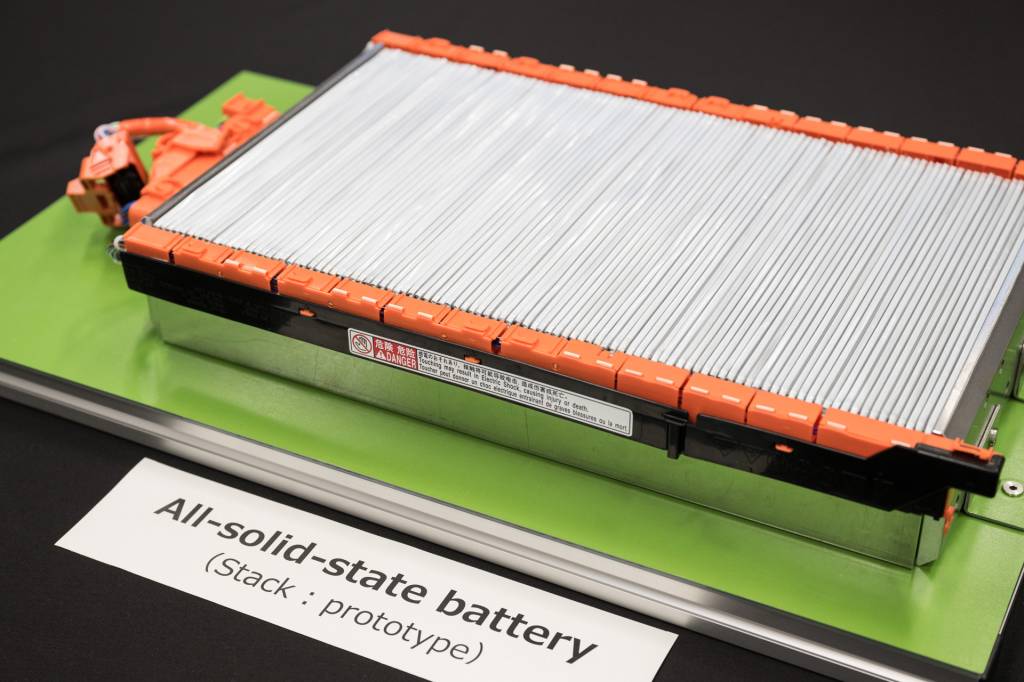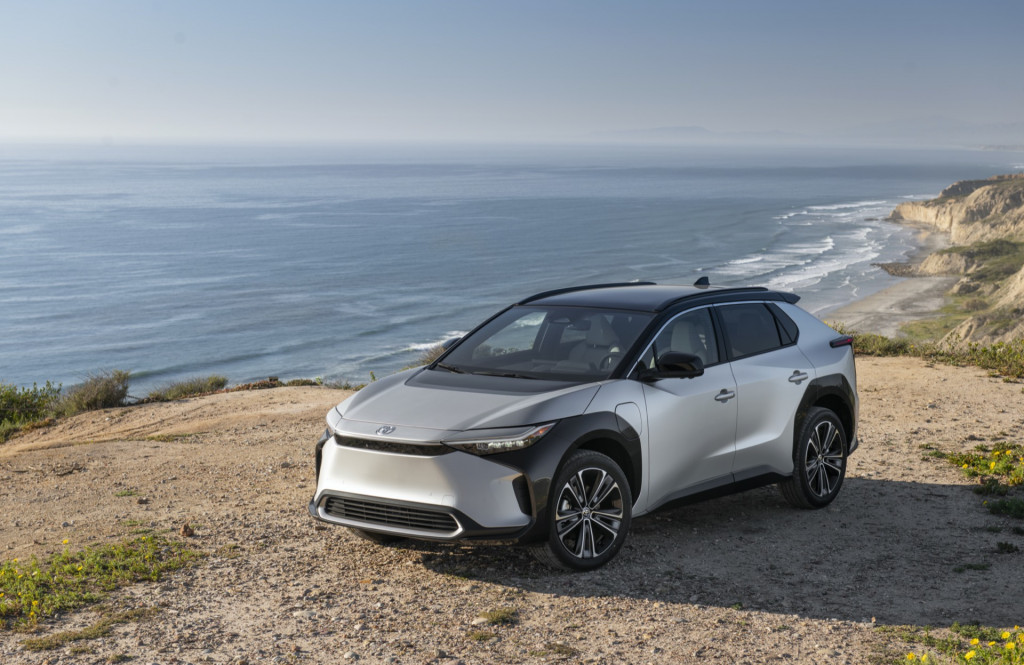Toyota this week gave an update on its battery research, claiming a major breakthrough in solid-state battery tech, which the automaker hopes to commercialize later in the decade.
In an Tuesday announcement that appeared to have been released in coordination with Toyota’s annual shareholder meeting, the automaker said it is aiming to commercialize solid-state batteries for EVs in the 2027-2028 timeframe, adding that the technology will allow for fast charging from 10% to 80% capacity in 10 minutes or less.

Toyota solid-state battery prototype
In these plans, Toyota appears to suggest that it eventually aims to push the range of some electric vehicle models with solid-state cells up to 746 miles (1,200 km), with the eventual potential to reach 932 miles (1,500 km)—all based on China’s CLTC driving cycle, which is highly optimistic relative to real-world results.
Applying an estimate based on the current vast difference between Toyota’s CLTC and EPA ratings, that could amount to a potential EPA range in future Toyota EVs of well over 500 miles with the 2027 solid-state tech.

2023 Toyota bZ4X Limited AWD
Toyota boasts a potential 50% improvement possible in future versions of the solid-state tech, Toyota claims. That would be a big leap from where Toyota is today. The automaker’s bZ4X is charmingly offbeat, we found, but in real-world follow-ups it hasn’t delivered in range or functionality.
The automaker has been researching solid-state batteries for some time, generating many patents in the process. Toyota originally promised a solid-state battery debut in a hybrid. It’s unclear whether that’s still on the way or not.

Toyota battery development plans
Alternatively, the new solid-state tech will be mixed in with a next generation of other batteries, including bipolar LFP (lithium iron phosphate) and a next generation NCM (nickel cobalt manganese), with the latter offering 20-minute fast-charging and effectively doubling the range of the current Toyota bZ4X—which currently achieves an EPA-rated 228 miles.
Toyota discussed a “high performance” bipolar lithium-ion battery, also for commercialization in 2027-2028. This battery aims for 10%-80% charge times of 20 minutes or less, and it’s one of multiple lithium-ion options Toyota said its pursuing, along with “fusion” and “popular” versions.
Toyota is far from the only automaker working on solid-state batteries. Nissan and Honda are also betting on solid-state batteries coming during this decade. Fast charging and stability have been among the advantages expected for solid-state cells—although as research published in 2022 pointed out, they might not always be safer.






